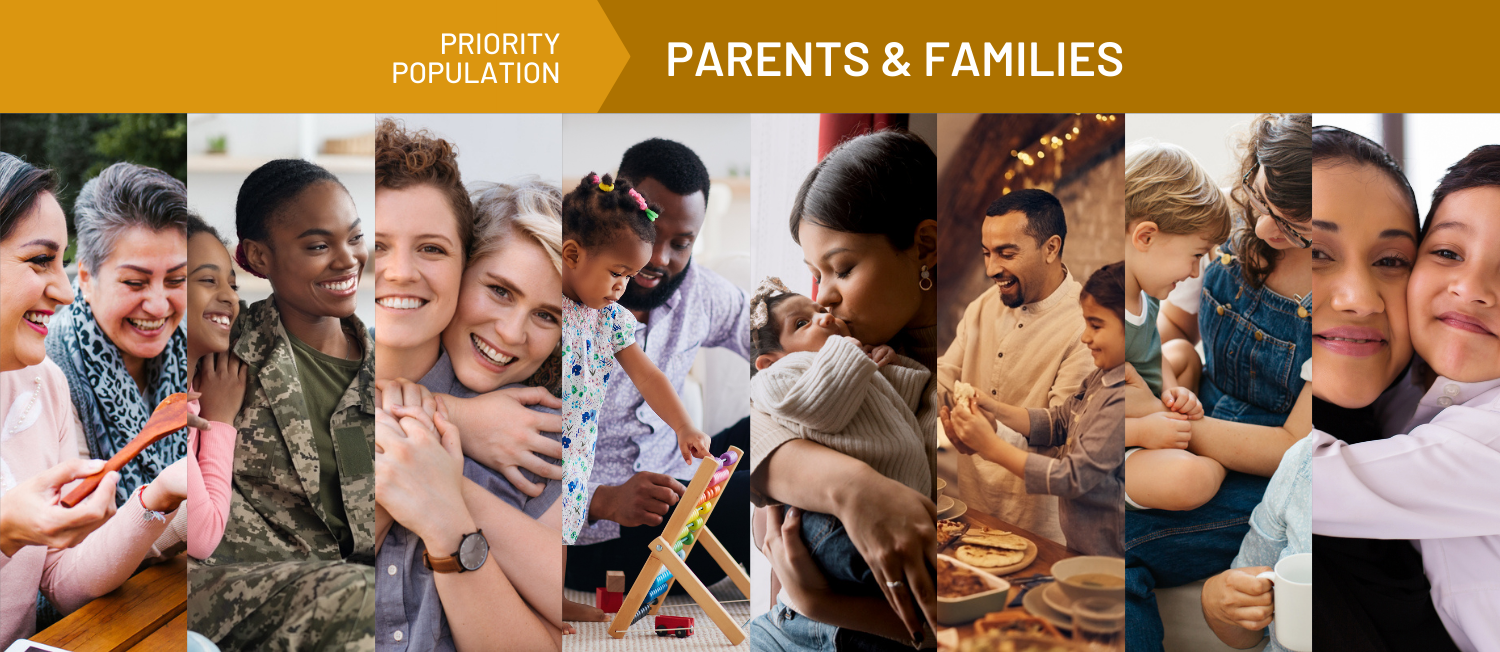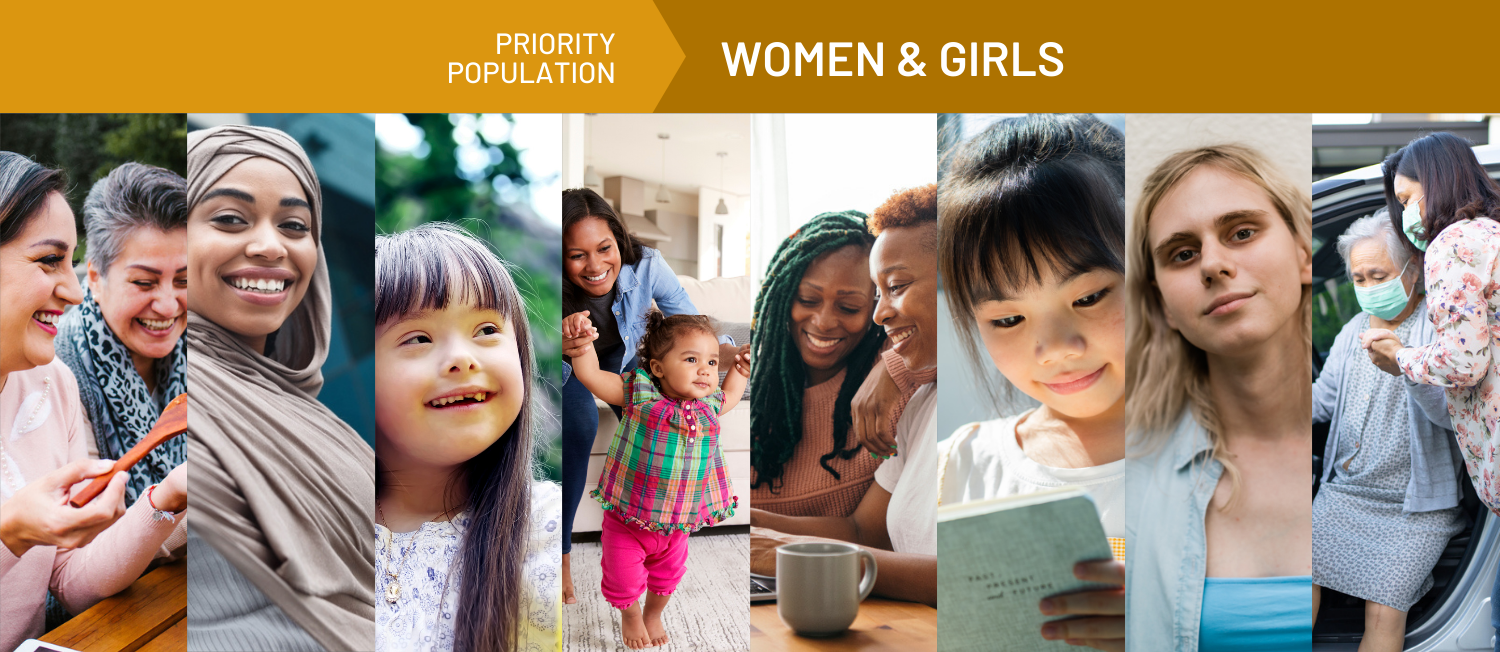Pregnant, Perinatal, and Breastfeeding People
Pregnant and nursing people encompass perinatal individuals, including people who are currently pregnant, are within a year of giving birth, and/or are breastfeeding. Pregnant people include a spectrum of identities, including cisgender women and gender-diverse individuals who experience pregnancy. The health and well-being of perinatal people is of grave importance and profoundly affects the health of our communities and future generations. Addressing their needs is vital for reducing health disparities, promoting equitable care, and supporting child, family, and community resilience.
Maternal mortality rates in the U.S. are among the highest in developed countries, with 22 maternal deaths per 100,000 live births as of 2022. Additionally, the supply of OB-GYNs and midwives is low compared to other nations, and many rural areas face significant provider shortages, further limiting access to critical maternal care.
Recent research indicates that pregnancy-related mortality rates for American Indian and Alaska Native (AIAN) women, as well as Black women, are more than three times higher than those for white women. Furthermore, Black, AIAN, and Native Hawaiian or Pacific Islander (NHPI) women face higher rates of preterm births, low birth weight infants, and limited or absent prenatal care when compared to white women. Additionally, these groups also experience significantly elevated infant mortality rates.
Reproductive justice guarantees that individuals can access comprehensive reproductive health care that affirms bodily autonomy, including contraceptives, reproductive education, fertility treatments, and abortion services. Yet systemic inequities—limited access to contraception, prenatal care, and abortion—disproportionately harm marginalized communities, worsening maternal health outcomes and disparities.
Despite shifts in family dynamics as more women join the workforce, policies supporting reproductive care, paid leave, and childrearing have not progressed—across the U.S., becoming a mother takes a toll on earnings. Medical racism and structural inequities persist, driving higher pregnancy-related deaths. The COVID-19 pandemic has intensified these inequities, and the reversal of Roe v. Wade has introduced additional barriers to abortion access, worsening maternal health outcomes.
Equity efforts must prioritize addressing racial disparities in maternal and infant outcomes, ensuring access to culturally competent care, and advocating for policies such as paid family leave, lactation accommodations, and affordable healthcare.
The Biden-Harris administration has allocated $558 million in funding to improve maternal health in the United States. They have expanded Medicaid coverage in 40 states and increased postpartum care coverage from 2 months to 12 months. Additionally, they launched the National Maternal Mental Health Hotline and invested in new programs to train more nurse midwives and community-based doulas. The administration is also focused on supporting the training of more nurse practitioners with an emphasis on maternal health, particularly in underserved and rural areas. However, there is still more to be done.
Changemakers should advocate for systemic reforms to protect reproductive and maternal health, including better reproductive education and access to abortion while empowering affected communities' voices. Women and pregnant individuals can advocate for change by sharing their experiences, pushing for policy reforms, and organizing for better healthcare access. Through community mobilization and engagement with policymakers, they can fight for equitable maternal health outcomes and reproductive justice.
Resources & Tools
Implications For Racial Inequities in Maternal Health if Roe v Wade is Lost
Resource - Journal Article
Racial Disparities in Maternal and Infant Health: Current Status and Efforts to Address Them
Resource - Policy Brief
Related Topics















